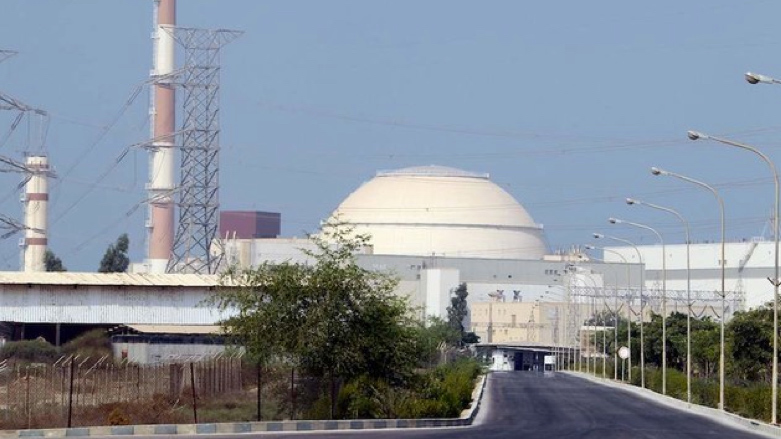U.S. Seeking ‘Informal, Unwritten Agreement’ with Iran: Reports

WASHINGTON DC, United States (Kurdistan 24) – In a report, citing officials from three countries, including the U.S., The New York Times reported late on Wednesday that the Biden administration was negotiating an “informal, unwritten agreement" with Iran on its nuclear program. A similar report appeared in The Wall Street Journal.
The Jerusalem Post noted that such stories have appeared before, regularly reported by that paper and other Israeli media. Last week, for example, the Israeli press cited “major progress” in nuclear talks between Washington and Tehran, with Israeli officials expecting “an agreement to be reached within a few weeks.”
Read More: U.S. announces new Iran sanctions amid reports of 'major progress' in nuclear deal
This time, however, there is a significant difference, the Post stated: U.S. officials are willing “to confirm details” to journalists “at a level that they were not willing to do before.” That may be “an indication of the deal’s imminence,” the Post said.
The Post also suggested that the informality of the reported agreement was a way for the administration to get around U.S. legislation: the Iran Nuclear Agreement Review Act (INARA.)
The INARA requires the administration to notify Congress within five days of any agreement reached with Iran on its nuclear program, as well as to provide Congress with all materials related to that agreement. Congress then has 30 days to review the agreement.
It seems, however, that none of that will happen, even if some form of an agreement on Iran’s nuclear program is reached.
Terms of Informal Agreement
Iran will limit its enrichment of uranium to its current level of enrichment: 60%, the Times reported. That is below the level of uranium purity required to produce a nuclear bomb, which is 90%.
Iran will “also halt lethal attacks on American contractors in Syria and Iraq,” the Times said. Presumably, that includes U.S. troops and not just contractors.
Iran would also “expand its cooperation” with inspectors from the International Atomic Energy Agency (IAEA) and “refrain from selling ballistic missiles to Russia,” the Times stated.
However, the problem with Iran’s arms sales to Russia has, largely, been drones, which Moscow is using to deadly effect in Ukraine. Again the Times is a bit unclear: will Iran also end drone sales to Russia?
Iran will also release the three Iranian-American prisoners whom it took hostage, when they returned to their home country on family visits.
In exchange, large amounts of Iranian funds are to be released. Washington would “unfreeze billions of dollars in Iranian assets, whose use would be limited to humanitarian purposes,” the Times reported.
Even if that can be enforced and the use of released assets limited to humanitarian purposes, money is fungible. Whatever Iran is spending now on humanitarian goods, the agreement, if implemented, would allow Iran to shift the funds it is now spending on food, medicine, etc. to more negative purposes.
Background: Iranians are Skillful Negotiators
When the Biden administration assumed office in Jan. 2021, restoring the 2015 Iranian nuclear accord, formally known as the Joint Comprehensive Plan of Action (JCPOA), was a top priority.
For over a year, the new administration pursued such a deal—but had no success. Rather, the record was dismal.
Iran appeared to be double-dealing, repeatedly raising new conditions for an agreement. Russia invaded Ukraine in February 2022, and Iran sided with Moscow. And later that year, widespread protests broke out in September, following the death of the young Kurdish woman, Zhina (Mahsa) Amini, while in police custody for not properly wearing her headscarf.
At that point, the talks on renewing the JCPOA were broken off. However, the Iranians are excellent negotiators! “Bazaar”—the Middle East market, where prices are negotiated—is actually a Persian word.
By the end of 2022, negotiations had resumed. They began with Rob Malley, a lawyer who led the JCPOA negotiations during the Obama administration, meeting the Iranian ambassador to the United Nations, Amir Saeid Iravani.
Malley held two meetings with Iravani, as the Times reported. They were followed in early May by a trip by Brett McGurk to Oman.
McGurk is another lawyer—as if a legal background was an appropriate background for dealing with sensitive and difficult Middle East issues—who holds the post of National Security Council Coordinator for the Middle East and North Africa.
In Oman, McGurk held indirect talks with the Iranians, with Omanis mediating between the Americans and an Iranian delegation that included Iran’s chief nuclear negotiator, Ali Bagheri Kani.
Throughout the effort to renew the JCPOA, Iran has refused to talk directly with U.S. officials. The Biden administration has never explained why that is an acceptable condition, particularly as it creates the impression that Washington is more eager to renew the JCPOA than Tehran.
The Israeli government remains opposed to the nuclear agreement, which Prime Minister Benjamin Netanyahu described on Tuesday to Israel’s parliamentary foreign affairs committee as a “mini-deal.”
“Our stance is clear,” he said before the closed door committee meeting began, as he affirrmed “Israel will continue to do everything to defend itself.”
